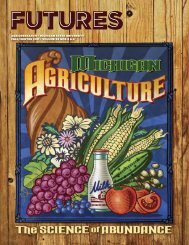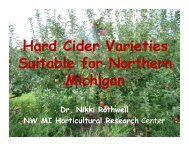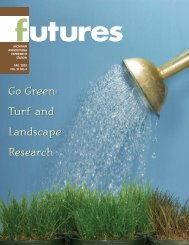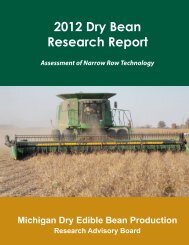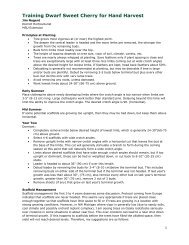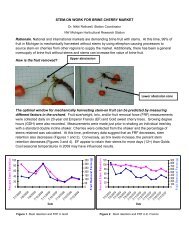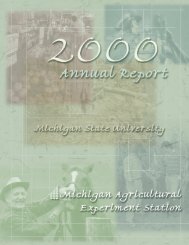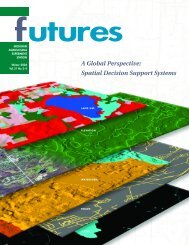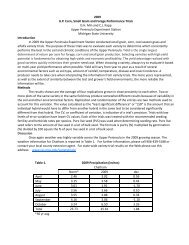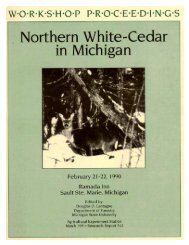01 ANNUAL REPORT - AgBioResearch - Michigan State University
01 ANNUAL REPORT - AgBioResearch - Michigan State University
01 ANNUAL REPORT - AgBioResearch - Michigan State University
You also want an ePaper? Increase the reach of your titles
YUMPU automatically turns print PDFs into web optimized ePapers that Google loves.
2<br />
INTRODUCTION BY DR. J. IAN GRAY<br />
20<strong>01</strong><br />
The guiding principle of the <strong>Michigan</strong> Agricultural<br />
Research for Your Future<br />
Dr. J. Ian Gray<br />
“Problem solving with today’s<br />
tools will not be sufficient to<br />
address tomorrow’s challenges . . .<br />
the solid foundation of the MAES<br />
supports efforts to prepare for<br />
those challenges now.”<br />
Experiment Station is “Research for Your Future,” and for<br />
the MAES scientists, administrators, field station managers<br />
and staff members, preparing for that future began the day<br />
they joined the MAES. Emerging successes in programs<br />
and research allow the MAES to continue building on its<br />
solid foundation as it moves through the 21st century.<br />
In the plant sciences, MAES scientist and plant<br />
molecular biologist Michael Thomashow was named the<br />
20<strong>01</strong> recipient of the Alexander von Humboldt Foundation<br />
Award. Thomashow is internationally recognized for his<br />
work on the molecular mechanisms of cold acclimation in<br />
plants. The von Humboldt committee judged<br />
Thomashow’s research on environmental stress tolerance<br />
in plants to extreme temperature as having far-reaching<br />
impact for agriculture. The Alexander von Humboldt<br />
Award is considered the most prestigious award for<br />
agricultural research in the United <strong>State</strong>s. Thomashow is<br />
an excellent scientist and a major contributor to the<br />
MAES, and research programs focusing on relationship<br />
between plants and environmental stress. Nutritional<br />
genomics, such as the work being done by MAES<br />
biochemist and molecular biologist Dean Della Penna, is<br />
addressing basic questions in the manipulation of vitamin<br />
E synthesis in a variety of agricultural crops. The answers<br />
to these questions can lead to methods for producing<br />
more plant foods nutritionally rich in vitamins, which<br />
can especially benefit countries where nutritional<br />
deficiencies are common.<br />
Food safety is an ongoing societal concern, and the<br />
MAES’s investment in the National Food Safety and<br />
Toxicology Center at MSU continues to play an<br />
important role in developing new techniques to detect<br />
food-borne pathogens and prevent them from<br />
contaminating the food supply. The MAES is working<br />
closely with the center’s new director, Ewen Todd, and<br />
deputy director Edward Mather to support research to<br />
meet the challenges in food safety.



